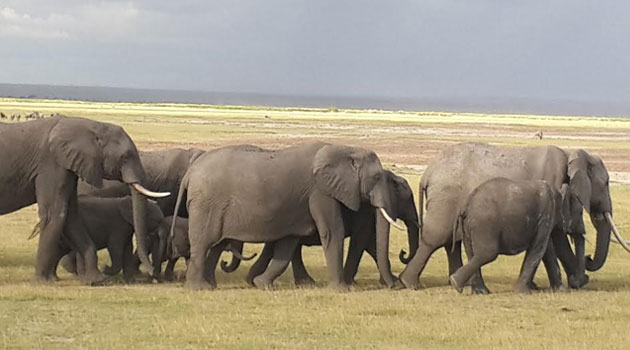
In the last three years over 100,000 elephants have been killed across Africa to supply Ivory to illegal markets with proceeds from the trade used to support criminal activity that include armed conflict and terrorism/JUDIE KABERIA
NAIROBI, Kenya Mar 3 – As Kenya joins the rest of the world in celebrating the World Wildlife Day, there is need to assess the progress made in the war against poaching.
Research done by the African Elephants Specialist Group in 2013 indicates that there are only 25,400 elephants in the country with the numbers dwindling by day.
Regardless of the tough rules and penalties implemented by countries particularly those widely challenged by poaching, new demand from emerging markets continue to threaten Africa’s elephants and rhinos.
In the last three years over 100,000 elephants have been killed across Africa to supply Ivory to illegal markets with proceeds from the trade used to support criminal activity that include armed conflict and terrorism.
However cases of rhino poaching have worsened with at least 40 dying last year alone with the same being seen this year too. This is despite the presence of heavy security in conservancies.
Capital FM News caught up with Elephant Neighbours Centre Executive Director Jim Nyamu who has been fighting to conserve elephants and rhinos for decades.
Nyamu feels that there is need for a game change in how matters poaching are handled.
“As we celebrate this year’s World Wildlife Day, it’s good to note that there is progress in the fight against poaching owing to the tough laws and penalties put in place. But of late there have been emerging cases of communities next to forests engaging in elephant and rhino poaching and this is what we need to address.”
“Indeed more rangers have been recruited and deployed in parks and conservancies across the country, but much work is needed to educate and highlight the dangers and impacts of poaching to communities next to forests and parks. As a network we are planning on using the small grass root based organizations to educate the residents on the need to protect the wildlife habitat and to co-exist peacefully,” he states.
Nyamu notes that other species facing extinction are the lions, cheetahs, hyenas, and owls due to human interference with the ecosystem.
“This is evident by the current sighting of lions that had strayed out of the national park in Nairobi. We’ve also seen cases of wildlife destroying people’s farms. I want to state that uncontrolled development projects especially those passing through parks and forests will destabilize the wildlife eco-system.” says Nyamu.
Nyamu also highlights on the need to improve the living standard of rangers by providing them with modern equipment and proper housing.
“By ensuring that our rangers are well taken care of, this will reduce cases of them engaging in the illegal trade. This should also include better remuneration; adequate training on modern ways used by poachers so as to tackle the issue with the efficiency it needs.”









































